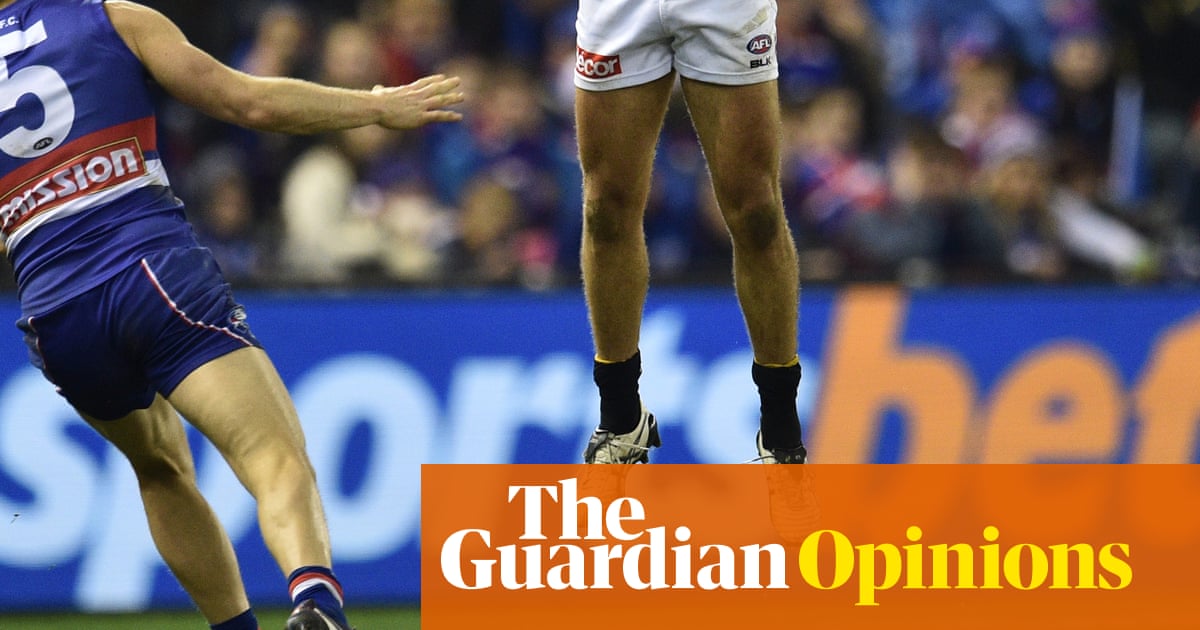Two years ago this week the Murphy report was delivered to the government, recommending the banning of gambling ads. And for two years the Albanese government has failed to act in the face of pressure from vested interests. Over those two yearsAustralians have gambled awayanother $60bn.
In June 2023 Labor MP Peta Murphy said: “Australians are the biggest losers in the world when it comes to gambling. We have a culture where sport and gambling are intrinsically linked. These behaviours are causing increasingly widespread and serious harm to individuals, families and communities.”
Australians know we’re the biggest losers by a large stretch over any other nation in the world. Australians know that gambling causes mental and financial stress. Australians know that gambling losses can trigger family violence. Australians know that gambling ads are normalising gambling, for children and adults.
Australians want it to stop.
Australia Institutepolling in Marchreconfirmed the majority view that three in four Australians support a total ban on gambling ads phased in over three years. These numbers are mirrored in surveys by the AFL Fans Association.
But the government is putting power before people.
At a public forum run by Kooyong independent Dr Monique Ryan, Curtin independent Kate Chaney and me in Melbourne on Wednesday night, John, who has experienced gambling harm, said that because of failed policy “a lot of people have seen suicide as the only option to escape the predatory behaviour of the gambling companies”.
The failure runs long and deep and crosses party lines. Murphy represented the outer Melbourne seat of Dunkley, which has more than its fair share of struggling Australians. She knew, especially after the social policy committee inquiry proved it, that online gambling and its blanket advertising was preying on their vulnerabilities.
She achieved rare multipartisan support for the report, which recommended a three-year phased gambling ad ban. That was just one of 31 recommendations, among them implementing a national strategy on harm reduction and national regulation, an ombudsman, a harm reduction levy, a public education campaign, more independent research and improved data collection.
“A phased, comprehensive ban on online gambling advertising is recommended within three years,” Murphy said. “This will give major sports and broadcasters time to find alternative advertisers and sponsors, while preventing another generation from experiencing escalating gambling harm.”
But to appease the gambling companies, broadcasters and sporting codes, both major parties have offered a halfway house, a partial ban to reduce ads per hour and keep ads out of prime-time sport. Previous similar policies have increased the number of ads in other programs including during news and family drama.
When pressed on his reticence to implement a full ban, theprime ministerhas repeatedlyimpliedthat gambling is part of Australian culture.
That’s disingenuous.
Firstly, this is not a debate about banninggambling, it’s aboutthe adsthat are encouraging it and causing untold harm.
Secondly, private sports betting has only been available since SportsBet was licensed in 1993. The “culture” has been built by profit-driven industries, and it can be changed by a government with courage.
Before an election, you can (perhaps) understand why a government may not want to defy powerful media companies that are embedded with sport in this country and historically have had the power to turn elections.
After, with a more than 90-seat majority, what’s the excuse?
If the issue is the profitability of the broadcasters – and I’m all for a strong media landscape – that should be addressed separately. Our communities should not be saddled with gambling problems to keep media and multinational gambling companies profitable. Nor should fans be preyed on by sporting codes that get a commission from each bet. It is immoral.
Had the government found its courage at the time, we would now be just one year off a full ad ban. Instead, they’ve failed to honour Murphy’s committee’scommonsense recommendations.
In turn, Australian communities have experienced another two years of gambling ads, normalising the link between betting and sport. During the last term of parliament, I twice tabled a private member’s bill to ban gambling advertising. South Australian MP Rebekha Sharkie also tabled legislation to address the issue. In all cases the government refused to debate it.
Now is the time.
MPs Chaney and Ryan have kicked off a new “ban gambling ads now” push this week. They have support from their communities, gambling advocates and fans. On the backbenches in both major parties there is also support for this change.
The opportunity sits with Anika Wells, the new minister for sport and communications (a vexed coupling in this context), who must respond to the Murphy report.
Peta Murphy died of breast cancer in December 2023. Her legacy must not be allowed to die with her.
Zoe Daniel is a three-time ABC foreign correspondent and former independent member for Goldstein
